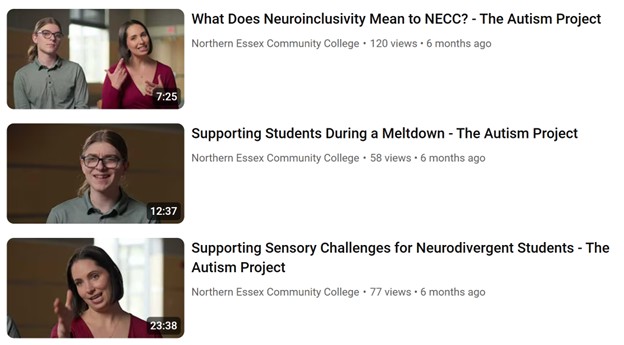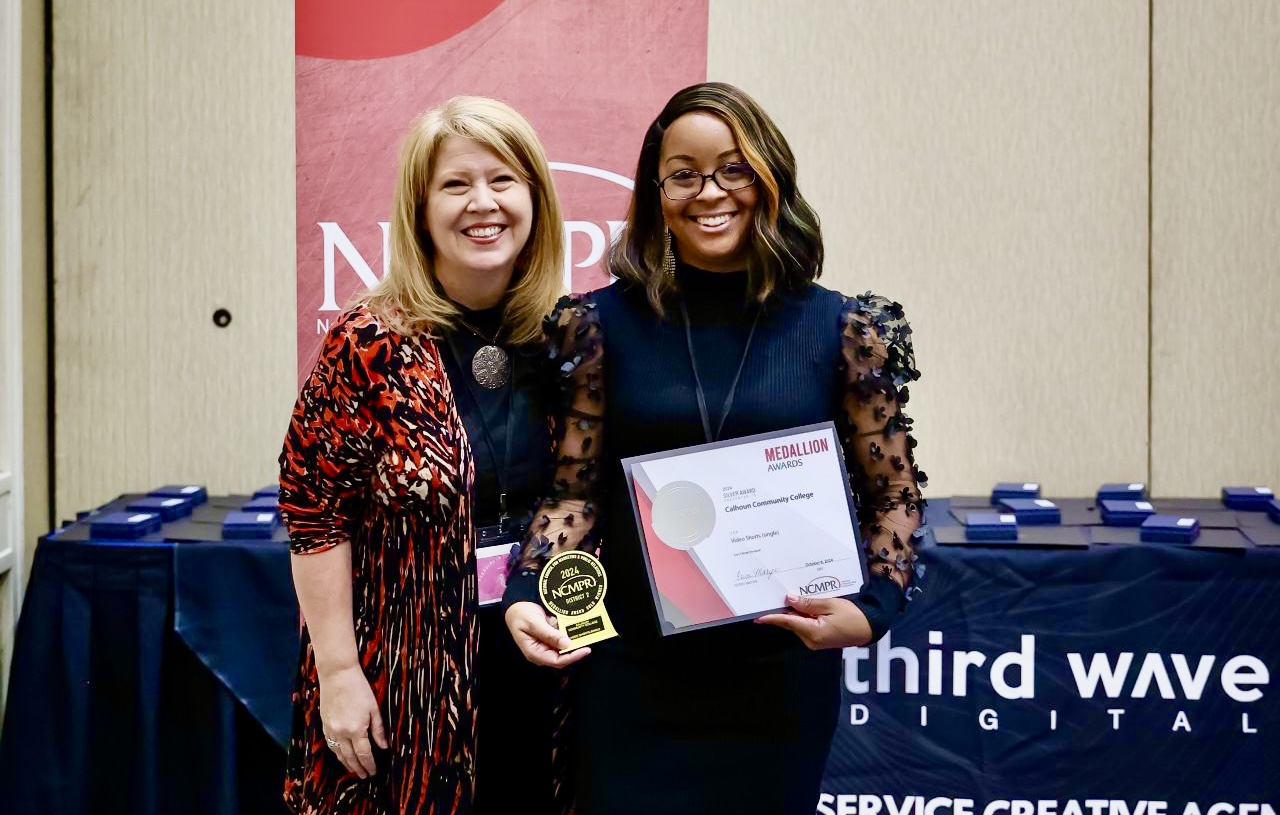Lessons from NECC’s Neuroinclusivity Initiative
By Sherika Attipoe, District 2's DEI Committee rep
“Diversity,” “equity” and “inclusion” are more than buzzwords – they’re a commitment to creating environments where all individuals can thrive. Northern Essex Community College (NECC) in Massachusetts has exemplified this through its award-winning initiative, Neuroinclusivity at NECC, a video series created in collaboration with The Autism Project. This forward-thinking endeavor recently earned NECC the 2024 District 1 bronze Medallion Award for Successful DEI Marketing.
Shining a Light on Neurodiversity
Globally, an estimated 10 to 20% of the population is neurodivergent, according to the World Economic Forum. This encompasses individuals with autism, ADHD, dyslexia and other neurological differences. In the U.S., the CDC reports that 1 in 36 children is diagnosed with autism, highlighting the growing need for inclusive practices that extend into adulthood and higher education.
Neurodiversity challenges the traditional deficit-based view of neurological differences, promoting the idea that these variations are a natural part of human diversity. However, society, designed primarily for neurotypical individuals, often creates barriers for neurodivergent people. NECC’s project addresses this head-on, reshaping the educational experience to be more inclusive and supportive.
Education as a Catalyst for Change
The “Neuroinclusivity at NECC” series serves as an educational tool for faculty, staff and students, offering actionable insights and video resources. From strategies to manage sensory challenges to fostering a sense of belonging, the videos emphasize practical steps for inclusion.
For example, one video focuses on supporting neurodivergent students during meltdowns. It highlights the importance of recognizing sensory triggers, like overwhelming noises or bright lights, and responding calmly to de-escalate situations. By educating the community, NECC fosters empathy and understanding, creating a safer and more welcoming campus.
Another video discusses the distinction between “meltdowns” and “shutdowns,” explaining how these responses are not attention-seeking behaviors but involuntary reactions to stress or overstimulation. The series encourages proactive communication, teaching staff to ask students about their needs and preferences for support.
Breaking Barriers, Building Belonging
At the heart of this initiative is a commitment to belonging. DJ Chase, a neurodivergent student and digital accessibility specialist at NECC, brings authenticity to the series, sharing their experiences to shed light on the challenges and triumphs of navigating higher education as a neurodivergent individual.
“Neuroinclusivity means that we support and celebrate people of all neurotypes,” says Chase in one of the videos. This mindset challenges institutions to go beyond merely accommodating differences to actively valuing them.

NECC’s collaboration with The Autism Project extends the impact of the series beyond the campus, making the videos accessible on YouTube. This open access ensures the lessons of neuroinclusivity reach a broader audience, inspiring other institutions to prioritize inclusion.
The Case for Neuroinclusion
The statistics are sobering: While neurodivergent individuals make up a significant portion of the population, many face systemic barriers that hinder their potential. For instance, research shows that only 38% of young adults with autism pursue post-secondary education, and employment rates for neurodivergent individuals remain disproportionately low.
By equipping educators and staff with tools to support neurodivergent students, NECC is paving the way for change. When neurodiverse individuals are given the resources and respect, they deserve, their unique perspectives and talents can flourish, enriching the community as a whole.
A Call to Action
NECC’s work is a testament to the power of education in driving social progress. But it is also a reminder that inclusion requires action. As institutions, we must strive to create environments where every individual – regardless of their neurotype – feels valued and supported.
Congratulations to NECC and The Autism Project for this well-deserved recognition. Their efforts not only celebrate progress but also challenge us all to do better. Let this be a call to action for every institution to embrace neuroinclusivity, fostering a world where diversity in all its forms is celebrated and everyone has the opportunity to thrive.

Sherika Attipoe, right, is the District 2 rep on NCMPR's DEI Committee. Here, she attends the 2024 District 2 Medallions ceremony, with NCMPR's 2024-25-president Virginia Moreland. Sherika is the assistant director of public relations at Calhoun Community College in Alabama.